
PC, Mac, Linux, Switch, PS4, XBone, iOS, Android
It feels a little odd to use this site for a game I don’t wholeheartedly recommend, but in the case of Ord I find what it’s doing so absolutely fascinating, and so potentially brilliant, that I feel compelled to highlight it anyway. It’s all about creating text adventures in single-word sentences. Even if, at the moment, its execution doesn’t quite match its creativity. If anything, this is a call to writers to grab hold of this, and start creating their own tales via the game’s tools.
The conceit is superb. It’s a text adventure told in single words. Which is easier to see than describe:
A single word gives you a situation, a question, or a possibility. You then pick between a couple of choices, and then two more words appear below the original. So it might be “Alarm”, and you choose between “Wake” or “Snooze”. After your choice, the results appear.
Alarm
Wake
Sirens
It’s through this incredible simplicity that the story is told. The only elaboration is some really lovely use of effects on the words. They might change colour to suggest moods, or start to wobble to imply drunkenness. Sometimes they become shadowed, creating a spooky atmosphere. It’s remarkably effective.
Released in 2019 as a paid-for game across many formats, it has since updated for free to include a total of five stories. There’s Quest, Dimensions, World, Foul Things and Heist. What they’re about is obviously the point of playing, so I won’t get into story specifics. But what’s such a shame is that the first four suffer from the exact same problem: instant deaths.

Given fifty-fifty choices, and obviously a lack of nuanced direction, it’s most often impossible to know which one is “correct”. Finding some Shade after walking through a portal, should you Rest or Avoid? I figured avoid, since resting in weird, unknown places is video game-speak for death, but no, instead I died of exposure. And with death, the stories restart from the very beginning.
There are two ways to approach this:
- To see it as an endurance challenge, remembering previous choices and whittling down the correct route through.
- Being incredibly annoyed at such a great idea being so tiresomely encumered.
Sadly 1 just isn’t realistic. And yet, despite my frustration, I have still found myself entranced by the notion. I’ve mostly played the game on my phone, and so tapping through the stories over and over hasn’t been exactly arduous. But it doesn’t get any less irritating when a perfectly reasonable choice sees me thrown back to the very start. It’s worth noting here that some of the stories have randomised events, and may not play out in the same order, and replaying does often allow access to moments you’d missed before. But despite this, the random deaths mean it’s not too long before I’ll just give up and move on.
What’s maddening is that there are obvious choices for how this could have been the game it deserved to be, some very simple, some very complicated. The most obvious is the option to take back a step. Yes, this might make it too “easy”, but in a game where “hard” is a result of random, unguessable choices, that’s little cost. The most difficult, but gosh the one I’d love to see realised, would be a far better branching tale.
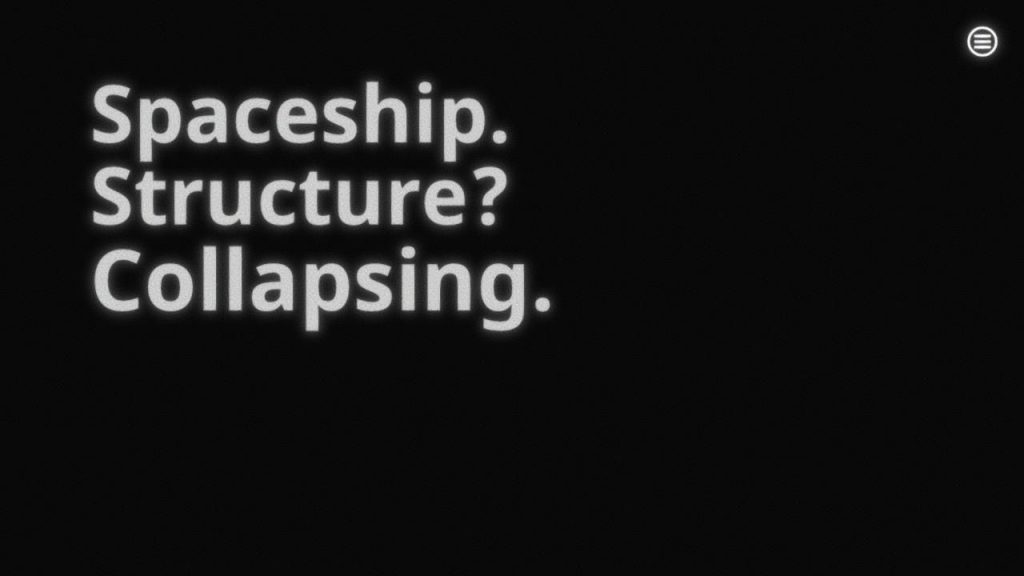
Yes, that’s like saying, “All they need to do is write 390 extra stories per game,” no doubt. But unfortunately, that’s the cost of offering choice in games. Having one of them arbitrarily kill you with no fault by the player isn’t the solution. Writing a way out of it is.
It’s worth noting that the most recently added story, Heist by Emma Levin, is the example others should follow. It plays with time, jumping back and forth through its narrative, as you rob a bank and escape on a train, ultimately infinitely looping, but without incessantly killing you. It too is ultimately unsatisfying in that it does just loop, but it’s a much more interesting offer to explore.
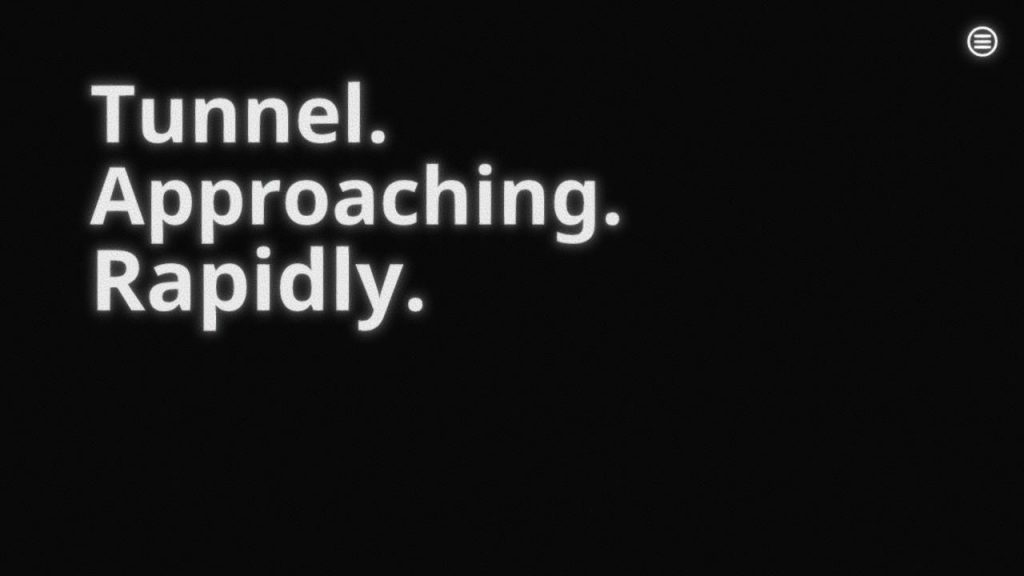
I’ve no idea if the extraordinarily prolific publisher Ratalaika Games and UK developers Mujo Games have long since moved on from this two-year-old project, but I really hope not. Since the tools exist to allow people to create their own stories within the game, I’d love for there to be a simpler in-game way of accessing them. They’re written using a Google Sheets template, so there’s very little to stop anyone having a go. (Although you will need to use a little add-on to allow you to export as a json.) But right now, they’re not easily found while playing. Instead you need to Shift-Tab, click on the Workshop button, and then subscribe to the… seven that exist. Then relaunch the game, and they’re in the Stories list. But of course none of that is available on the non-Steam versions, which seems such a colossal shame. If only there were a better set-up so it were possible to access a repository of user-made stories on my phone, for instance.
It strikes me that if this could get the attention of Twine-like communities, it could blow up, as people push their creativity to write intricate stories in three word blocks. That only seven have been created, five of them in English, is crazy! So let’s see if that can change.
All Buried Treasure articles are funded by Patreon backers. If you want to see more reviews of great indie games, please consider backing this project.


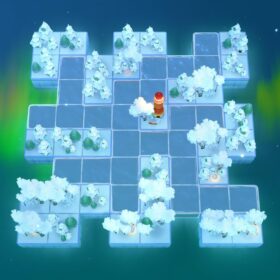
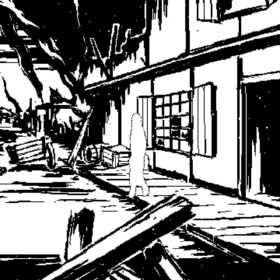
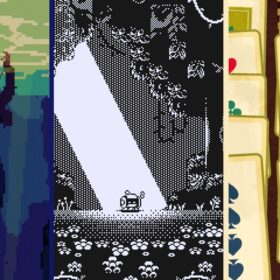


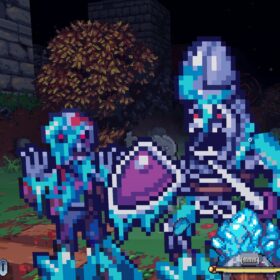
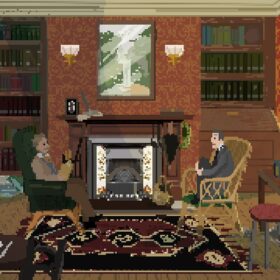
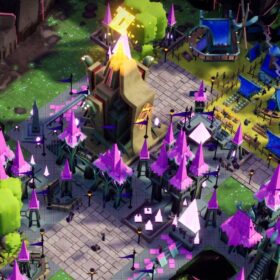
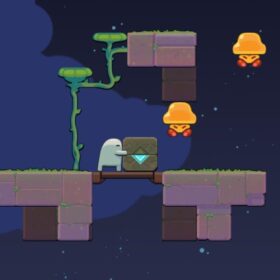
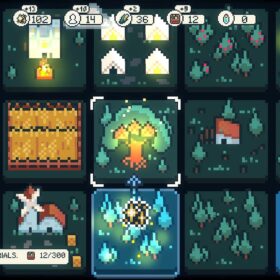

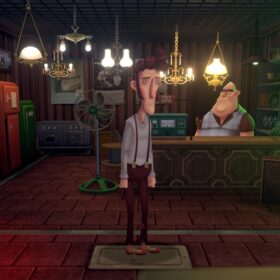
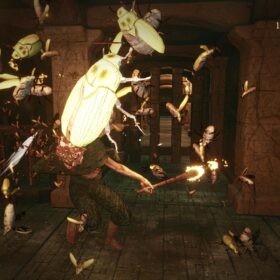

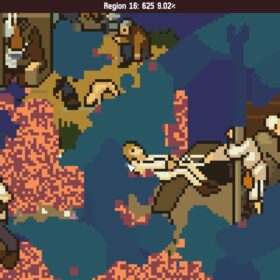
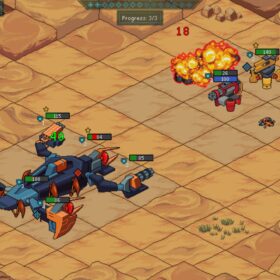


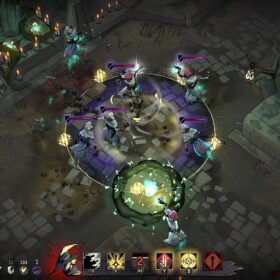
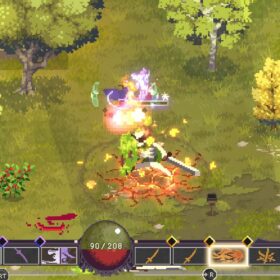
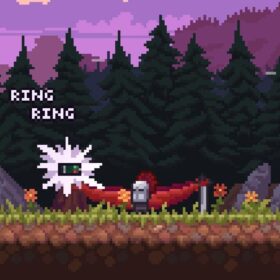
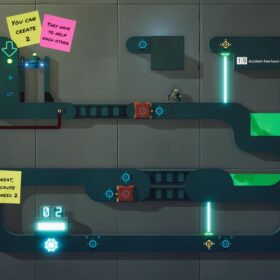
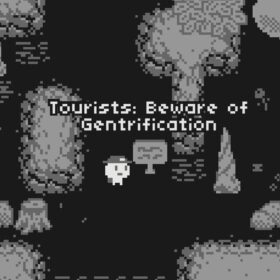
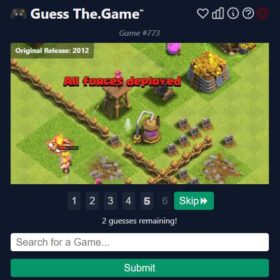
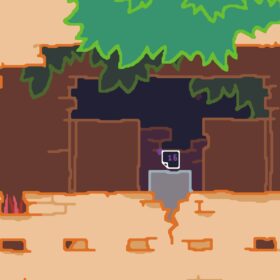
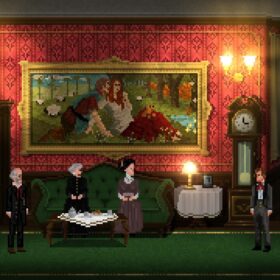

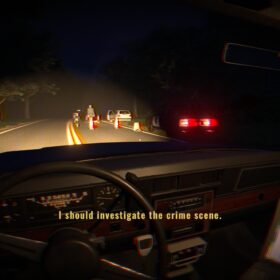
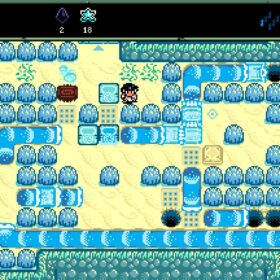
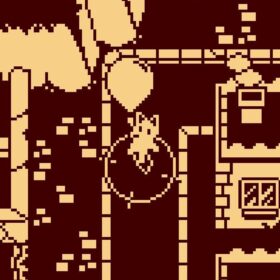
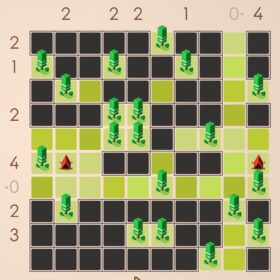

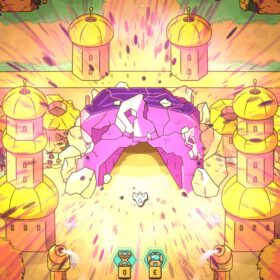
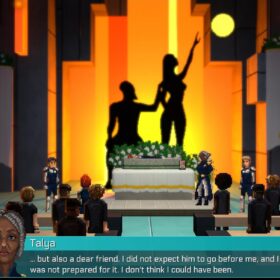

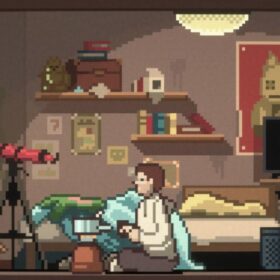
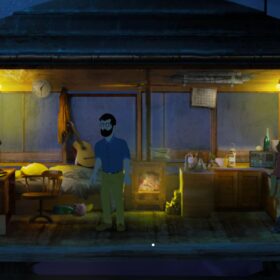
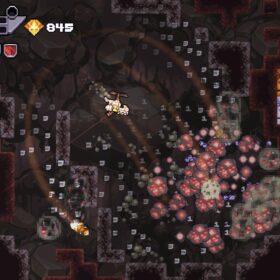
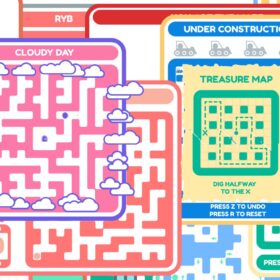
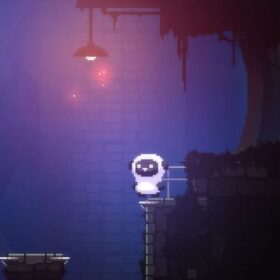
Ooh, I really like this one, actually. Just played about with Quest for half an hour. It’s quick enough that the deaths don’t feel like failures to me – they’re endings in themselves. Very nice central premise. I’m amazed how much worldbuilding they manage to do with single words. Thanks for the recommendation!
Sounds like an issue as old as the choose-your-own-adventure book. Not being able to stick your fingers between digital pages to trace back your steps sounds like a pain.
Oooo writing one of these even a short one sounds like it could be a ton of fun. I’ll have to check this out later.
Currently playing Foul Things… I’ve been playing for hours & have just unlocked an achievement. Operator… have no idea how I skipped Fraternal!
I’ve scribbled notes of the path through, but occassionally the game will randomise & the exact same path kills me anyway (cellar door closing bottle isn’t an option). I’ve occassionally pressed the wrong button, working on auto-pilot through the myriad, & end up back at the start.
It’s so aggravating, & I think I’m going to give up. If even an achievement unlock doubled as a save?
Anyway, off to spend 15 minutes of clicking to find out if the other 50% option also leads to death.